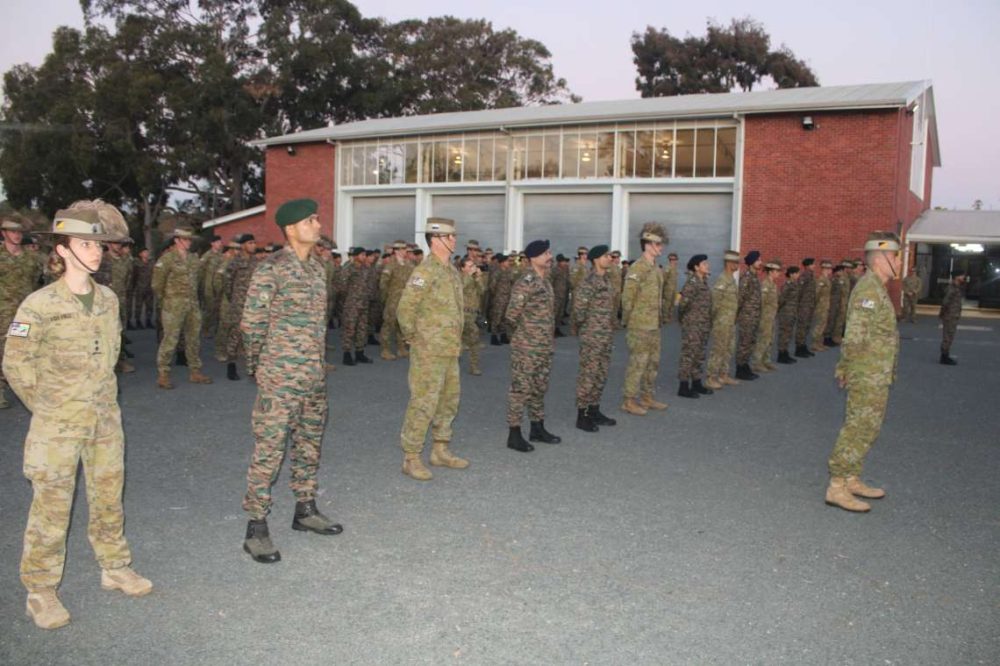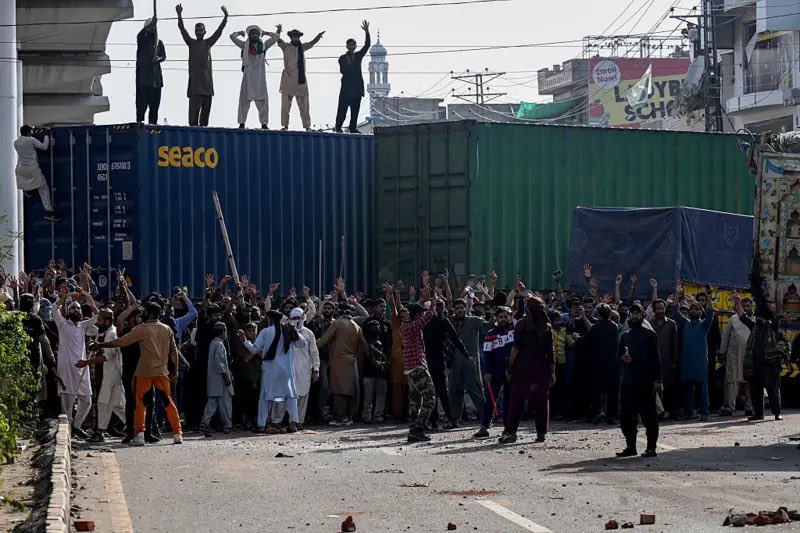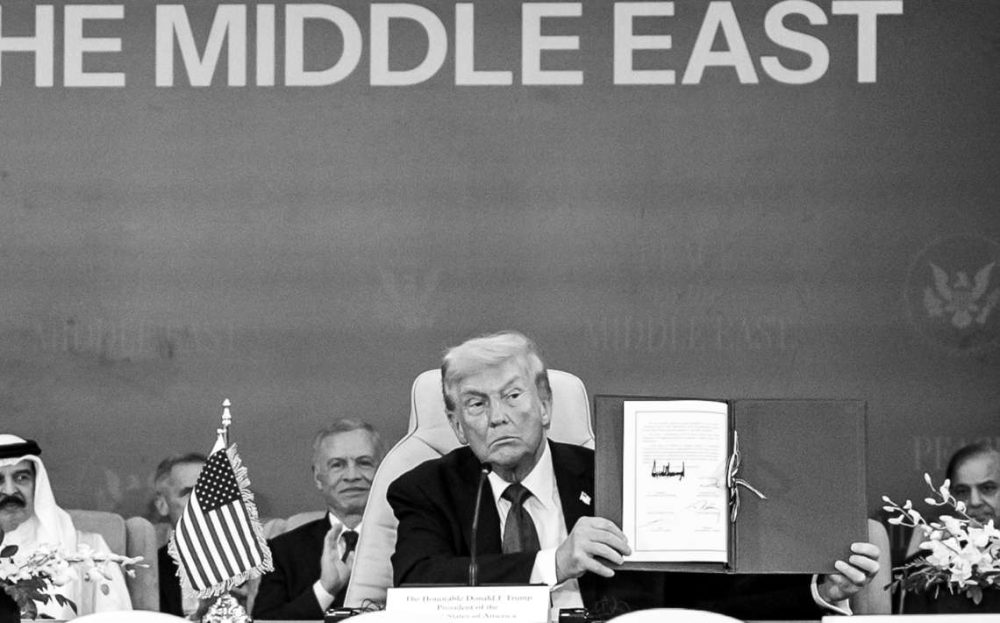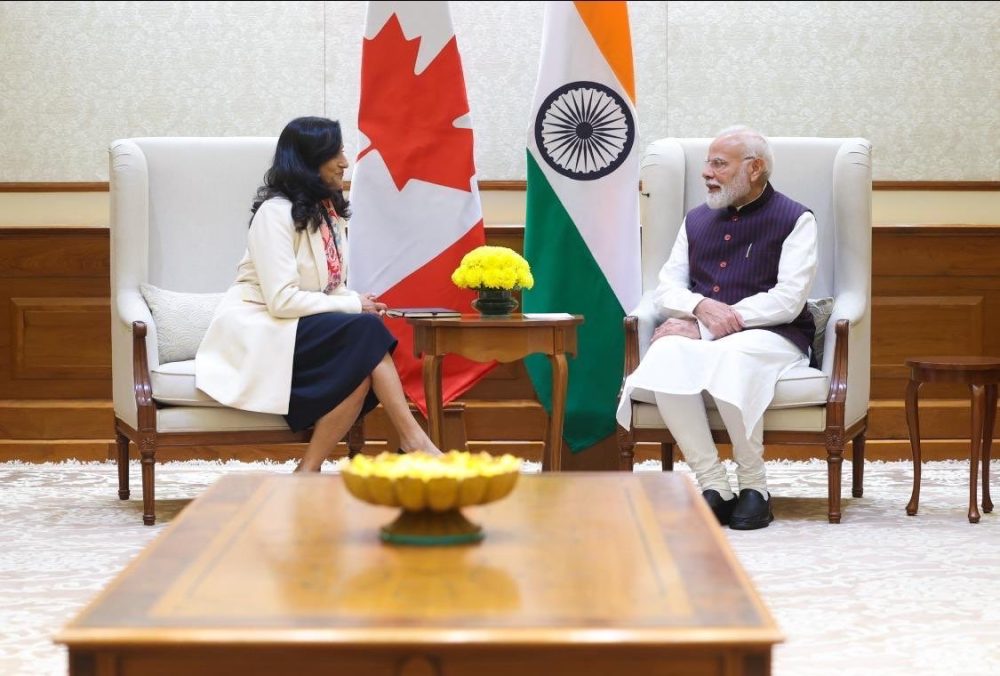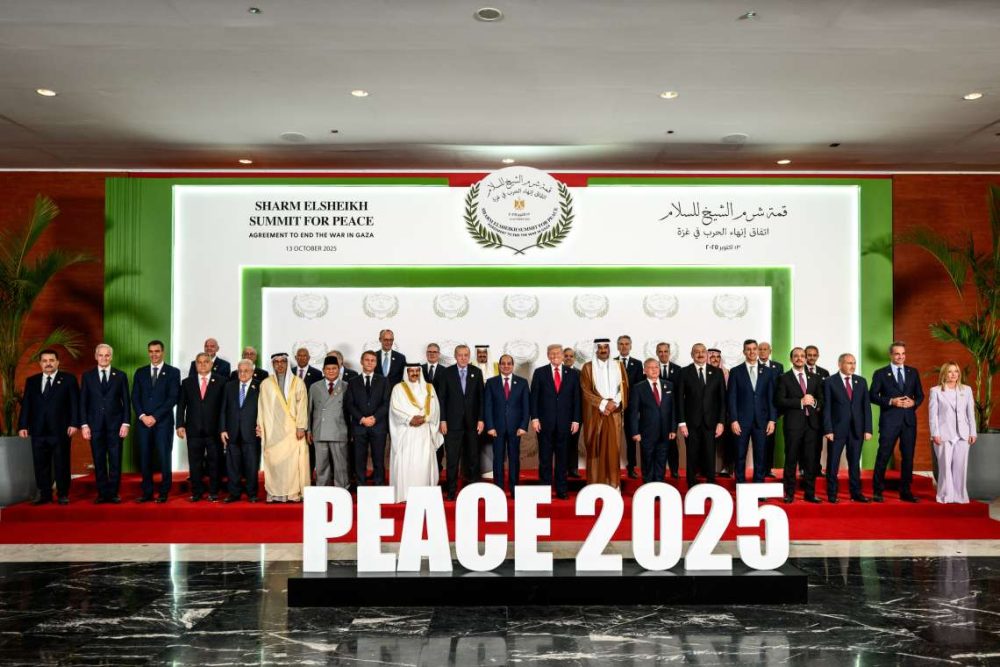Putin also asked the centre to help state bodies of Azerbaijan and Armenia to restore civil infrastructure in Nagorno-Karabakh and create proper conditions for its people to live a normal life….reports Asian Lite News

Photo taken on Sept. 29, 2020 shows a man walking by a house damaged during clashes in the Tartar district bordering the Nagorno-Karabakh region. (Photo by Tofik Babayev/Xinhua)
Russian President Vladimir Putin has signed an order to set up an inter-departmental humanitarian response centre to resolve humanitarian issues and rebuild civil infrastructure in the disputed Nagorno-Karabakh region.
According to the order published by the Kremlin on Friday, the centre is tasked with facilitating the return of displaced people to their home in the conflict-ridden Nagorno-Karabakh, reports Xinhua news agency.
Putin also asked the centre to help state bodies of Azerbaijan and Armenia to restore civil infrastructure in Nagorno-Karabakh and create proper conditions for its people to live a normal life.
Armenia and Azerbaijan have been at loggerheads over the mountainous region of Nagorno-Karabakh since 1988. The latest round of armed conflict broke out in the region in September, causing heavy casualties and property losses.
Azerbaijani President Ilham Aliyev, Armenian Prime Minister Nikol Pashinyan and Putin signed a joint statement on Monday, agreeing on a complete ceasefire in the region.

A man shows a house damaged during the new round of Nagorno-Karabakh conflict between Azerbaijan and Armenia in Fuzuli district of Azerbaijan, Sept. 30, 2020. (Photo by Tofik Babayev/Xinhua/IANS)
As agreed, Russia will deploy a peacekeeping contingent consisting of 1,960 servicemen with small arms, 90 armoured personnel carriers, and 380 vehicles to the region.
This is the fourth ceasefire since last month.
Meanwhile, UN Secretary-General Antonio Guterres on Friday welcomed the new ceasefire, adding that he was “grateful to the Russian Federation for its effort is bringing about this agreement”.
Earlier, the three other ceasefires — two brokered by Russia (October 10, 17) and one by the US (October 26) — collapsed after Armenia and Azerbaijan traded accusations and attacks.

(160405) — NAGORNO-KARABAKH, April 5, 2016 (Xinhua) — Houses damaged in recent conflicts are seen in Azerbaijan’s Gapanli village bordering Nagorno-Karabakh region, on April 5, 2016. The Armenian and Azerbaijani Defense Ministries both confirmed Tuesday that a ceasefire agreement in the disputed Nagorno-Karabakh region is currently being prepared. (Xinhua/Tofik Babayev)(dh)
A new round of armed conflict broke out on September 27 along the contact line of the disputed Nagorno-Karabakh region, which is internationally recognized as part of Azerbaijan but mostly governed by the Republic of Artsakh, a de facto independent state with an Armenian ethnic majority.
The area experienced flare-ups of violence in the summer of 2014, April 2016 and in July this year.
Armenia and Azerbaijan went to war over the region in 1988-94, eventually declaring a ceasefire.
However, a settlement was never reached.
Also read:US snubs Russia-backed conference on Syrian refugees





